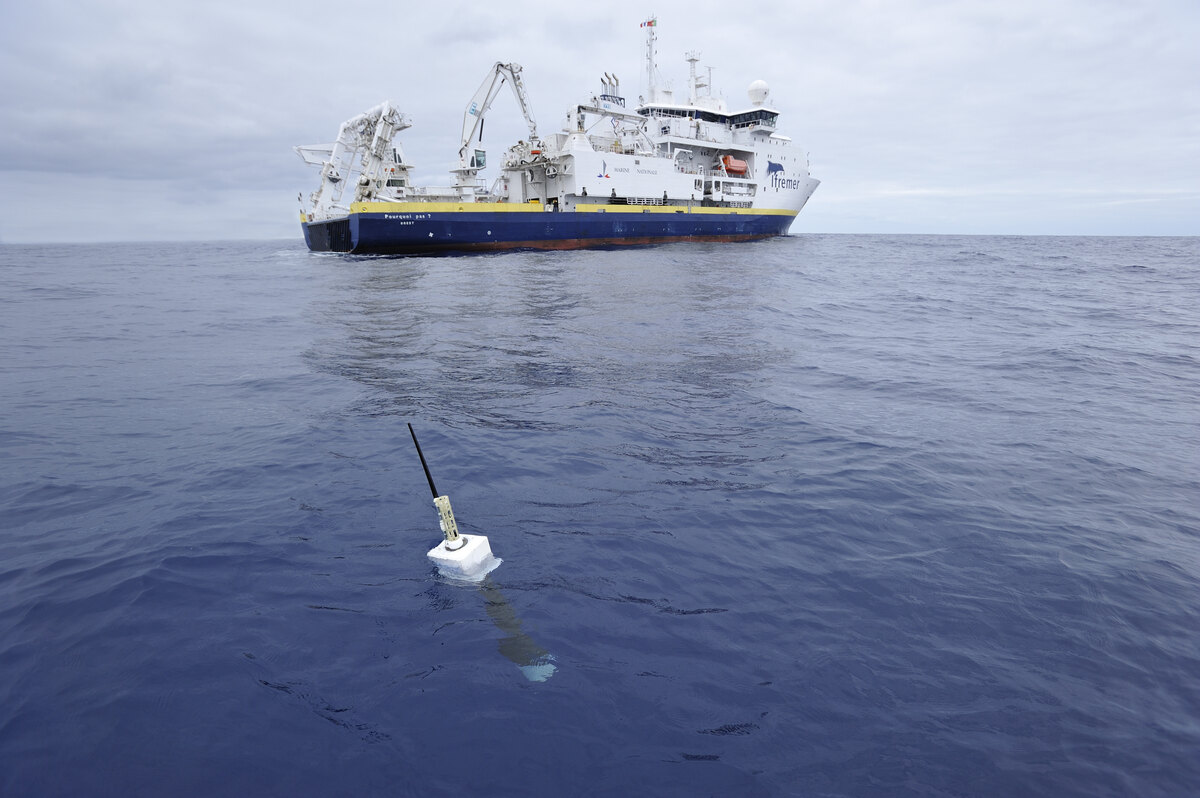Data Repositories and Assembly Centers
Quality controlled Argo data from both the Global Argo Data Repository (GADR) and Global Data Assembly Centers (GDACs), available in Mono-Profile and Multi-Profile NetCDF formats.
Basins Data
Individual profiles organized by ocean and subdivided into years and months. Each month has an inventory table that includes path and the file names, monthly station observations, sampling date (year, month, and day), and location (latitude and longitude, negative numbers are for southern latitudes and western longitudes).
Floats Data
Profiles, metadata, and technical information files grouped by the Argo float identification numbers. Consult the Grey Floats table for a list of floats with documented or potential technical issues.
Data Assembly Centers Inventory
Real time, quality controlled float data from each Argo Data Assembly Center (DAC).
Note: DAC nationalities refer to the deploying nation, not the location of the float
- Australian CSIRO Marine Research (csiro)
- Atlantic Oceanographic and Meteorological Laboratory (aoml)
- British Oceanographic Data Centre (bodc)
- Canadian Marine Environmental Data Services (meds)
- China National Marine Data and Information Service(nmdis)
- China Second Institute of Oceanography (csio)
- French Coriolis Centre (coriolis)
- Indian National Center for Ocean Information Services (incois)
- Japan Meteorological Agency (jma)
- Korea Meteorological Agency (kma)
- Korea Ocean Research and Development Institute (kordi)
More About Argo
Multi-Profile Floats
[prefix]_[float_ID_number]_[data_type].[ext]
Legend
-
prefix: always nodc, to indicate NODC format
-
float_ID_number: a seven-digit number beginning with A9xxxx. A is the World Meteorological Organization deployment region, 9 is a float indicator, and xxxx is a number allocated serially.
-
data_type: three or four-character string indicating the file's data type.dat:Vertical distribution of measured parameters such as temperature, salinity, and conductivity of profiling floats
-
inv:Inventory tables for each float on the disk
-
sta:Status of each float as of CD production
-
prof:Vertical distribution of measured parameters in the so called "one-file per float" or "multi-profile" formatsext: filename extension, indicating the kind of data stored in the file. e.g., nc = netCDF
Mono-Profile Floats
[prefix]_[data_mode][float_ID_number]_[cycle_number].[ext]
Legend
-
prefix: always nodc
-
data_mode: data mode of the float, R for real-time and D for delayed-mode
-
float_ID_number: a seven-digit number, A9xxxxx as described above
-
cycle_number: a three-digit number indicating the cycle number of the float
-
ext: always nc to indicate netCDF format




